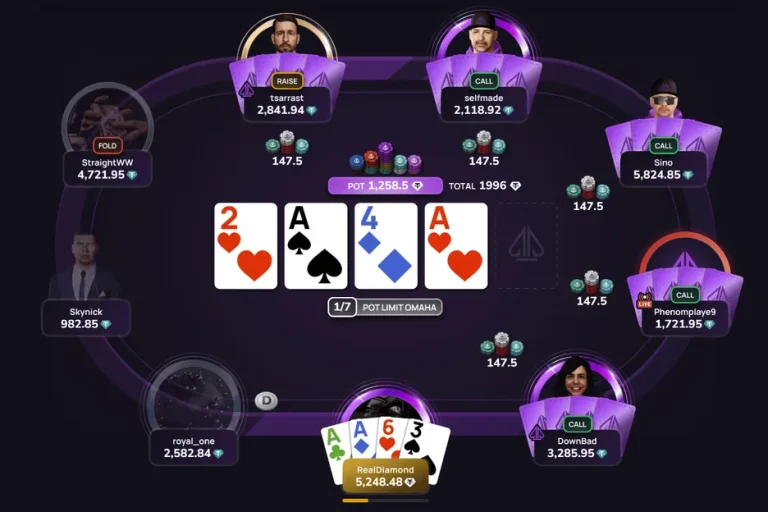Approaching Six Card Stud with a winning mentality requires more than understanding the rules. Unlike many forms of poker, this lesser-known variant adds complexity through its unique structure—each player receives six cards instead of seven, with betting intervals that reward sharp focus, discipline, and strategic adaptability.
Developing a winning mindset means preparing mentally, emotionally, and strategically to outlast and outplay opponents across long sessions and high-pressure hands.
Understanding the Game Dynamics
Before you can win consistently, you must internalize the flow of Six Card Stud:
-
Each player is dealt two downcards and four upcards.
-
Betting rounds follow after third, fourth, fifth, and sixth street.
-
The best five-card poker hand from the six received cards wins the pot.
Unlike Texas Hold’em or Seven Card Stud, there’s less information available, and fewer cards mean tighter decision-making windows.
Embracing Patience and Discipline
A winning mentality in Six Card Stud begins with mental endurance. Many hands are lost to boredom or impatience, as players chase suboptimal holdings out of frustration. To avoid that:
-
Wait for playable hands, especially those with strong low pairs, straight possibilities, or hidden strength.
-
Discipline yourself to fold when the math or position doesn’t favor you.
Successful players trust their decision-making over instant gratification.
Reading the Table Effectively
Your mental sharpness should always be focused on what’s showing:
-
Track opponents’ upcards and notice patterns in their betting behavior.
-
Identify dead cards that reduce the odds of your drawing outs.
-
Keep a mental log of player tendencies—who bluffs, who plays tight, and who calls down light.
Strong observational skills reduce the psychological fog that leads to tilt or impulsive bets.
Confidence Through Preparation
Confidence comes from preparation. Players with a winning mentality spend time:
-
Reviewing hand histories or using poker tools to analyze leaks.
-
Practicing bankroll management, so financial stress doesn’t affect in-game performance.
-
Studying common scenarios in Six Card Stud to develop intuition about hand ranges and value betting.
The more confident you are in your skillset, the more resistant you’ll be to swings.
Staying Emotionally Balanced
Poker is a game of variance. A winning mentality involves emotional stability, especially in Six Card Stud where:
-
Coolers happen—you may lose with a hidden set to a higher one.
-
Bluffs backfire—and that’s part of the game.
-
Draws miss—even when the odds seem in your favor.
Tilt-resistant players treat losses as data, not ego wounds. They don’t chase, complain, or spiral—they recalibrate.
Learning from Each Session
Winners aren’t perfect, but they reflect constantly:
-
What could have been done differently?
-
Were your reads accurate?
-
Were you playing at your best, or just coasting?
A winning mentality embraces feedback and evolves with every game played.
FAQ
What’s the biggest mental challenge in Six Card Stud?
Maintaining focus through long sessions is key. With fewer community dynamics than Hold’em, the game demands constant memory of upcards and dead cards, making mental fatigue a common hurdle.
How do I avoid tilt in Six Card Stud?
Stick to a routine of controlled breathing, review sessions, and pre-set stop-loss limits. Accept variance as part of the game and remind yourself that long-term decisions matter more than short-term results.
How important is table image in Six Card Stud?
Very. Since players see four of your six cards, your perceived range affects how others respond to your bets. A tight image may let you bluff more successfully, while a loose image can help you extract value.


